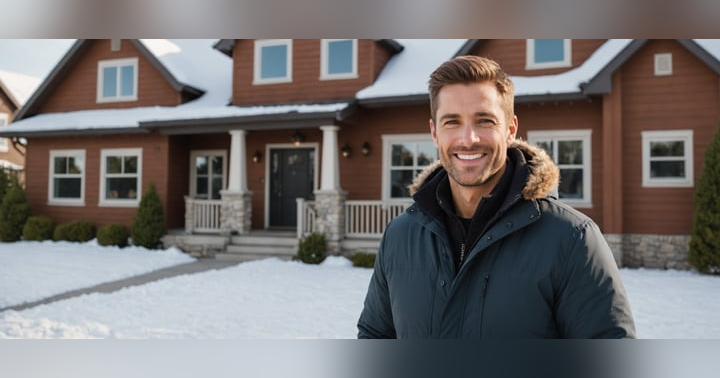Confronting Rising Anti-LGBTQ+ Legislation Through Legal Advocacy and Activism

Navigating LGBTQ+ Rights in a Shifting Political Landscape
As Pride Month unfolds, the vibrant celebration of LGBTQ+ identity and community is sharply contrasted by an alarming rise in anti-LGBTQ+ legislation and the dismantling of diversity, equity, and inclusion (DEI) initiatives across the United States. State legislatures have become battlegrounds where fundamental rights face aggressive challenges, from restrictions on gender-affirming care and bans on drag performances to attacks on inclusive education and workplace protections. Against this fraught backdrop, many in the LGBTQ+ community are reconnecting with Pride’s original purpose: not only a celebration but a resolute form of resistance and visibility.
Mari Nemec, Advocacy Counsel for the National LGBTQ+ Bar Association, offers crucial insight into the legal front of this struggle. Drawing on her extensive experience as a longtime contributor to the Bar and former Alliance for Justice staffer, Mari highlights the indispensable role of legal advocacy in this moment: “We really are the support system for the litigators...making sure that they have the resources that they need...from the moment that they apply to law school till the moment that they're in the courtroom.” Her perspective is a powerful reminder that Pride has always been political, and deeply rooted in the fight for civil rights.
Advocacy in Action: Legal Defenses Amid Rising Hostility
The current political climate has shifted Pride’s tone from celebration to protest. Across the country, a surge of anti-LGBTQ+ bills targets transgender and non-binary people by restricting access to gender-affirming healthcare and rolling back protections in schools and workplaces. These regressive laws threaten to erase decades of progress, spurring renewed activism and vigorous legal resistance.
At the forefront of this defense is the National LGBTQ+ Bar Association (LGBTQ+ Bar), a nationwide network of legal professionals committed year-round to advancing LGBTQ+ justice. Their work includes programming, supporting law students, and organizing events such as Lavender Law, the world’s largest LGBTQ+ legal conference. Mari explains the LGBTQ+ Bar’s mission is to: “make [the legal profession and system] more accessible and equitable for LGBTQ+ people.”
Tools like judicial bench guides and litigation tracking resources help courts recognize how their decisions impact LGBTQ+ lives, fostering a justice system that reflects and respects diversity.
Behind the Scenes: Empowering LGBTQ+ Legal Advocates
While high-profile court rulings capture headlines, much of the LGBTQ+ legal movement’s strength is cultivated behind the scenes. The LGBTQ+ Bar supports attorneys handling pivotal cases by providing networks, resources, and expertise essential to success. This behind-the-scenes work amplifies legal advocacy and shapes the broader fight for equality.
Central to this effort is increasing LGBTQ+ representation within the legal profession itself, ensuring that those defending rights share lived experiences with the communities they serve. Mari emphasizes this connection: “The best lawyers are the ones who can think really creatively and come up with innovative ideas and arguments. That’s going to happen when you have teams composed of people from a variety of experiences and backgrounds.”
Building an inclusive legal field is vital to fostering innovative strategies and lasting justice for LGBTQ+ individuals.
Responding to Escalating Attacks: Resilience in the Legal Community
The rollback of DEI programs has dealt a chilling blow to LGBTQ+ legal professionals, particularly transgender and non-binary attorneys. Fellowships, internships, and inclusive hiring initiatives are disappearing, narrowing pathways for LGBTQ+ lawyers to enter and thrive in the profession. These setbacks also reflect a wider repudiation of diversity’s critical role in innovation and collaboration.
Despite these obstacles, the LGBTQ+ Bar remains resolute. Its members actively litigate cases defending the safety and dignity of LGBTQ+ people, while law students mobilize on campuses to protect their communities. Public education initiatives, including executive order trackers and forums, demystify complex political developments, empowering LGBTQ+ individuals to navigate uncertainty without fear.
Confusion often arises around executive orders and their effect on LGBTQ+ rights. Mari clarifies: “Executive orders... do not create new laws, and they do not change existing laws. It’s essentially the executive branch setting forth the policy that they want the executive branch to implement.”
While executive orders direct federal agencies, lasting legal change depends on legislation or judicial rulings.
Legal challenges frequently target harmful executive orders, seeking to block or delay their implementation. Though these battles may be prolonged, they are crucial to preventing immediate damage. Public education on this topic helps reduce anxiety and counter misinformation, allowing communities to focus on critical issues.
Heightened Threats: The Trans Community and Beyond
The sharpest attacks in this era disproportionately affect transgender, non-binary, and gender non-conforming individuals. Legislative efforts escalate restrictions on gender-affirming care, impose bathroom bans, limit sports participation, and curtail travel rights. Mari states plainly: “It’s very clear that the current administration wants to make it impossible to be trans in public life.”
This surge builds on a decade-long backlash that intensified after the 2015 Supreme Court ruling in Obergefell v. Hodges, which legalized marriage equality. Since then, opponents have shifted focus to undermining trans rights as a way to weaken the entire LGBTQ+ movement. In the most recent legislative session alone, over 577 anti-LGBTQ+ bills were introduced nationwide, most aimed at limiting trans and non-binary access to healthcare, education, and public services.
Other vulnerable groups face similar threats. LGBTQ+ immigrants and asylum seekers encounter increased deportation risks to unsafe environments. Federal funding cuts threaten HIV prevention, treatment, and critical public health programs essential to LGBTQ+ well-being. Together, these attacks deepen systemic marginalization and erasure.
Legal Battles: Holding Back Harmful Policies
Recent court rulings have played a pivotal role in halting damaging policies aimed at the LGBTQ+ community. Preliminary injunctions have temporarily blocked bans on gender-affirming care, restrictions on updating gender markers, and discriminatory housing policies affecting incarcerated trans individuals. These rulings provide a crucial buffer against an array of executive orders and state laws that seek to roll back LGBTQ+ rights.
Though setbacks like the Supreme Court’s stance on the trans military ban remain challenging, the judiciary largely continues to serve as a check on executive overreach. Courts uphold constitutional protections amid political volatility, offering an essential layer of accountability. Still, this balance is delicate and demands ongoing vigilance from advocates and allies.
Visibility and Activism: Pride as Resistance
While Pride was once a season dominated by parades and festivities, it has become a renewed space for activism and solidarity. The increasing commercialization of Pride in recent years is shifting as many corporate sponsors withdraw amid political backlash. Mari observes: “The political wind blows a different way, and we're seeing that now... sponsors that have sponsored for years are suddenly not coming in.”
This change fuels a grassroots revival of Pride, emphasizing activism, visibility, and mutual aid. Community-driven efforts, such as resource drives, legislative lobbying, and local gatherings, reinforce that Pride remains not only a joyful celebration but also a powerful act of defiance against erasure. Especially as anti-LGBTQ+ rhetoric intensifies against trans and non-binary people, Pride’s role as both a space for joy and protest grows even more vital.
Legal Advocacy and Community Empowerment
The LGBTQ+ Bar exemplifies the complex, multifaceted work necessary to defend rights today. The legal community confronts unique challenges balancing professional advocacy with emotional resilience. Mari affirms: “The legal world is for us. Law schools are for us, and this country is for us. We all get a piece of it.”
Their efforts include connecting attorneys with pro bono clinics focused on legal name and gender marker changes, mentorship programs, and advocacy events such as Lavender Law. These initiatives empower LGBTQ+ legal professionals to drive tangible change while fostering solidarity.
Beyond the legal sphere, informed activism, education, and storytelling remain critical tools. Combating misinformation and sensationalism around healthcare access, school censorship, and anti-trans legislation helps protect the community from further marginalization.
The Vital Role of Allyship
Effective allyship is essential in safeguarding LGBTQ+ rights and requires active engagement, not passive support. Mari emphasizes: “Allyship is a verb. It’s not a noun.”
True allies show up consistently through attending community events, volunteering, donating, and advocating for inclusive policies.
Additionally, allyship means acknowledging and addressing intersectional identities within the LGBTQ+ community. Cisgender queer individuals must support trans and non-binary peers; white queer people stand with queer People of Color; and those with citizenship or able-bodied privilege advocate for immigrants and people with disabilities. Building cross-identity coalitions strengthens the collective defense against coordinated attacks on LGBTQ+ rights.
Embracing Authenticity: A Powerful Tool for Change
Living openly and authentically is itself a form of resistance. Mari notes: “There’s tremendous power in authenticity because it doesn’t give others the ability to ignore us.”
Visibility cultivates empathy and understanding, making it harder for society to dismiss or dehumanize LGBTQ+ individuals.
Representation matters for both present and future generations. Seeing queer leaders in fields like law inspires others to pursue their paths. For Mari, witnessing such role models was pivotal in her decision to attend law school and engage in advocacy, illustrating how authenticity creates lasting ripple effects.
Looking Ahead: Focused Action and Sustained Joy
In today’s complex political climate, it’s natural for many in the LGBTQ+ community to feel overwhelmed or fearful about the future. While concerns about major issues like marriage equality remain valid, it’s important to recognize that such changes—if they were to occur—would unfold over years, not overnight. The immediate challenges demand urgent attention and action.
Focusing on what directly affects the community right now allows for more effective advocacy and meaningful progress. By prioritizing current threats and opportunities, LGBTQ+ individuals and allies can channel their energy where it matters most, using their voices, skills, and presence to protect rights and push for change.
This renewed focus echoes the original spirit of Pride: a protest and a movement grounded in activism. Far from just celebration, today’s Pride calls for reconnecting with those roots, reigniting the collective commitment to justice and equity. At the same time, it is vital to find moments of queer joy, resilience, and humanity, which sustain the community through adversity.
And remember: every day is all we have, so you've got to make your own happiness.
For more information on this topic, listen to Episode 154. Pride and Protest: Defending LGBTQ+ Rights in a Shifting America (with Mari Nemec).
Tune into your favorite podcast player every Tuesday for new episodes of A Jaded Gay.


















